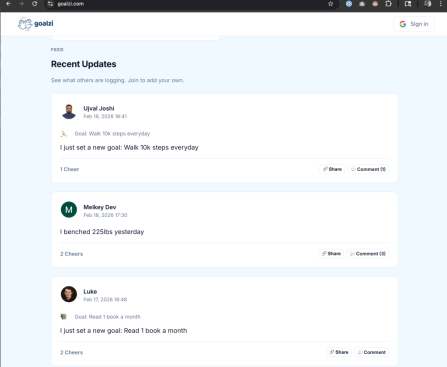Meta is buying billions of dollars in AMD AI chips in a multiyear deal tied to a 160 million-share warrant, deepening its push to diversify beyond Nvidia and expand data center capacity.
Blog Posts
Blog Posts
Sonos Unveils Live Activities Functionality to Tackle Significant iOS Issue
**Sonos Plans Significant App Upgrade for Enhanced Audio Management on iOS**
Sonos, the well-known audio brand, is preparing to improve its mobile application for iOS and Android platforms, concentrating on streamlining navigation and enhancing control functionalities. After a difficult app launch in 2024 that greatly affected the company, Sonos is adopting a careful strategy under the guidance of its new CEO, Tom Conrad, who seeks to guarantee that the forthcoming updates deliver a smooth user experience.
The forthcoming update is not just a superficial revamp but a collection of necessary adjustments aimed at improving the usability of Sonos’ audio devices. One of the most eagerly awaited enhancements for iOS users is the addition of lock screen playback control. This feature, already present for Android users, will permit iPhone users to manage their Sonos speakers directly from the lock screen, facilitating music control without the need to unlock the device.
To incorporate this capability, Sonos intends to utilize Apple’s Live Activities feature, which will provide a similar experience to what is available on Android. This initiative showcases Sonos’ dedication to addressing user needs and enhancing the overall effectiveness of its app.
For more comprehensive information regarding Sonos’ app overhaul and future initiatives, readers can consult the complete article on Bloomberg.
Future Apple Product Color Choices: A Survey for Consumer Feedback
**The Dramatic Change in Apple’s Color Approach: Cosmic Orange and More**
In the past few years, Apple has largely leaned towards understated hues for its flagship iPhone Pro models. However, the launch of Cosmic Orange in the most recent version represents a noteworthy break from this pattern. This daring selection has been acknowledged for contributing to unprecedented iPhone sales, indicating that consumers might be inclined towards a more colorful spectrum in high-end devices.
Traditionally, Apple kept more vivid shades for its entry-level models, like the iPhone 5C, while its premium devices adhered to a more restrained visual style. This trend was consistent across other product categories, including the MacBook, where color choices were typically confined to safer tones. For example, the M4 MacBook Air was advertised as blue but did not actually provide a genuinely vibrant shade, leading many customers to seek more.
The enthusiastic reception of Cosmic Orange hints at a rising demand for colorful selections in luxury products. Feedback from consumers reflects a strong wish for a wider variety of color options throughout Apple’s lineup. Surveys on platforms such as the MacBook Air indicate that a considerable majority of users would appreciate a more extensive color range.
This shift in consumer demand mirrors trends observed in other technology firms. Take Google, for instance, which has adopted an array of colors for its Pixel smartphones, providing everything from classic black and white to cheerful pastels and striking tones. This strategy has resonated with buyers, emphasizing the opportunity for Apple to broaden its color selection.
As Apple gears up to unveil new products, including an affordable MacBook and the much-anticipated iPhone 18 Pro, conversations about color choices are increasingly pertinent. Speculation hints that the forthcoming MacBook could come in several vibrant shades, while the iPhone 18 Pro might reveal a rich red variant. This presents a chance for Apple to assess consumer enthusiasm for bright colors in its premium lineup.
To further connect with its target audience, Apple might think about initiating surveys to comprehend preferences for upcoming color offerings. Queries could explore whether consumers desire bolder colors in premium models, what specific shades they are interested in, and which color options they would select for new products.
In summary, Apple’s recent venture into more vibrant colors, as showcased by Cosmic Orange, indicates a possible evolution in its design strategy. As consumer tastes change, the company may discover that adopting a broader selection of colors not only elevates its product allure but also boosts sales and enhances customer satisfaction.
How I Established a Production-Grade Deployment for My Vibe-Coded App
Some solid advice from a couple of Frontend Masters courses made for a fast, secure, and ready to scale deployment system.
Kioxia Releases UFS 5.0 Flash Memory with 1TB Capacity, 10.8 GB/s Speed

Kioxia has announced that it has begun shipping evaluation samples of UFS 5.0 embedded flash memory available in capacities of 512 GB and 1 TB. UFS 5.0 is a new standard for embedded flash storage currently being developed by JEDEC for next-generation mobile devices. The new standard utilizes MIPI M-PHY version 6.0 for the physical layer and UniPro version 3.0 for the protocol. The new High-Speed Gear 6 (HS-GEAR6) mode available in M-PHY version 6.0 can handle up to 46.6 Gbps per lane, meaning that with 2 lanes, it can achieve around 10.8 GB/s read/write performance, outperforming most NVMe SSDs, except for PCIe Gen5 SSDs. As a reminder, the previous UFS 4.0 standard promised up to 4,200 MB/s, so the upcoming UFS 5.0 standard more than doubles the theoretical speed. Besides the higher throughput, UFS 5.0 adds the following features, according to JEDEC: Integrated link equalization for more reliable signal […]
The post Kioxia samples UFS 5.0 embedded flash memory with up to 1TB capacity, 10.8 GB/s data rate appeared first on CNX Software – Embedded Systems News.
Five Reasons Android Provides Greater Power Compared to iOS
Google’s Android compared to Apple’s iOS. There is considerable overlap between the two, as both Google and Apple frequently imitate software features that were initially introduced by their competitor. Individuals who are not particularly devoted to either ecosystem would not make a poor choice selecting the device that satisfies their immediate requirements, irrespective of the operating system. However, more knowledgeable users might argue otherwise, suggesting that the decision lies between variety, customization, and freedom, versus premium products centered around privacy and security that do not provide the same freedoms. In the following sections, we will clarify why Android is superior to iOS.
We are no longer in the early days of the Android versus iPhone competition. We are faced with two established operating systems that are each highly competent. Android 16 and iOS 26 are the most recent software versions available for Android and iPhone, transforming the handheld device in your pocket into a robust personal computer. The smartphone may now be the primary device you reach for when performing tasks that would have previously necessitated a laptop or desktop. That portable computer becomes even more adaptable if it operates on Android, allowing for several actions that are not possible on an iPhone.
An Android smartphone will perform multitasking more effectively than iOS and will provide you with a more comprehensive file management system. Android devices can accommodate almost any app through sideloading, while iPhones are largely confined to the App Store. All of this culminates in a more PC-like experience on Android compared to what you would find on an iPhone. Lastly, we must acknowledge the rise of AI, where Google holds a significant advantage over Apple.
An Android device (and interface) for every preference, style, and budget
$17 Device Boosts Efficiency and Earns Rave Reviews from Amazon Customers
We have long understood that procrastination is not primarily linked to laziness or time issues, but rather to human behavior and psychological factors. It is also not significantly related to inadequate time management. Productivity often declines without the proper motivation or an effective work schedule, and that does not imply working tirelessly all day, every day. A viable approach to address this and potentially create more concentrated work periods is to employ a strategy known as the Pomodoro method. This involves working for a designated time frame with full concentration and then taking a brief break afterward. Typically, this means working in 25-minute blocks followed by five-minute pauses. These sessions are monitored using a specialized tool called a Pomodoro timer.
There exists a variety of Pomodoro timers with distinct designs and functionalities, making them incredibly valuable tools for enhancing productivity while working remotely. One particular timer that has gained popularity on Amazon is receiving high praise from reviewers. The OORAII rotating Pomodoro timer, priced at only $17, boasts over 870 reviews on Amazon and holds a 4.7 out of 5-star rating. An impressive 85% of these reviews are 5 stars, with an additional 9% rating it at 4 stars, resulting in 94% of all reviews being rated 4 stars or higher. It appears that users are quite fond of this product.
Many comments commend it as “elegant, functional,” and “almost perfectly designed.” Some have referred to it as an “essential task timer,” noting that it has been exactly what they needed to maintain focus and energy throughout their day.
What makes the Pomodoro technique effective?
Developed in the 1980s by Francesco Cirillo, a university student in France aiming to enhance his study practices, the Pomodoro technique specifically tackles the issue of natural burnout. He initially utilized a basic manual timer, akin to an egg timer or a digital kitchen timer. Cirillo discovered that short breaks between periods of intense focus provide essential time for the body to relax, enabling sustained productivity, provided the method is adhered to and genuine breaks are taken.
The Pomodoro technique is recognized for its numerous advantages during high-concentration work or study periods, such as enhanced focus, reduced distractions, diminished burnout feelings, and overall increased motivation. It also alleviates stress and anxiety linked to work, particularly the pressure of impending deadlines.
The $17 OORAII Pomodoro timer from Amazon enables you to monitor your individual 25-minute focused sessions, alternated with five-minute breaks. It includes preset intervals for easier selection, along with additional 10-minute and 50-minute options. Once set, the timer emits a sound alert with three volume options — silent, low, and high — to signal the end of the interval. A gravity sensor detects the selected interval, and flipping it activates the system. It also boasts an extended battery life with USB-C charging for user convenience. While you could opt for more conventional Amazon gadgets, like an Echo speaker or an Alexa-enabled device, the OORAII Pomodoro timer comes preconfigured for this technique, eliminating the need to adjust a clock or timer, making it simple to use. Plus, it costs only $17, which is less than what you’d typically spend on a fast food meal these days.
“Unexpected Removal of Favored Electronics from Costco Aisles”
confirming fans’ most dreaded concerns regarding the Steam Machine and the increasing prices of electronic parts, the past several months have been challenging for gamers and the consumer electronics sector as a whole. Now, it seems that the gaming community is facing yet another setback, with Costco ceasing to stock Xbox consoles or games in both the U.S. and U.K.
Although the initial discovery was made by users across various online platforms, Costco appears to have stopped offering Xbox gaming systems. The rationale behind this is somewhat unclear, but numerous factors could influence this decision, such as climbing costs and declining sales of the console. Given that Business Insider highlights Costco as the third largest retailer globally, trailing only Walmart and Amazon, this decision could represent a substantial loss for gamers.
Other gaming consoles and titles remain available at Costco, and you can find enough products through the retailer to construct your own retro arcade if you wish, but do not anticipate finding anything related to Xbox in the near future. This may also serve as further indication that users might prefer the PlayStation 5 over an Xbox in 2026. Nevertheless, Microsoft has also confirmed that another Xbox console will be released following the X and S series.
Costco no longer stocks Microsoft Xbox items
More Shohei Ohtani Content Arriving on TikTok
Major League Baseball wants more of a footprint on TikTok. Just in time for spring training, the two companies announced Tuesday they were partnering to expand baseball content on TikTok, including creating an MLB hub in the app and, of course, bringing in more influencers. Baseball is coming back after a season that was especially […]
This Limited Edition Death Stranding-Inspired Tablet Is the Coolest Device I’ve Ever Used
The Asus ROG Flow Z13 was already a unique beast. It’s a chunky gaming tablet with impressive AMD Strix Halo integrated graphics. I was really into it when I reviewed it around this time last year. But just look at it now, clad in the stylings of Hideo Kojima’s game studio and his longtime collaborator, […]










